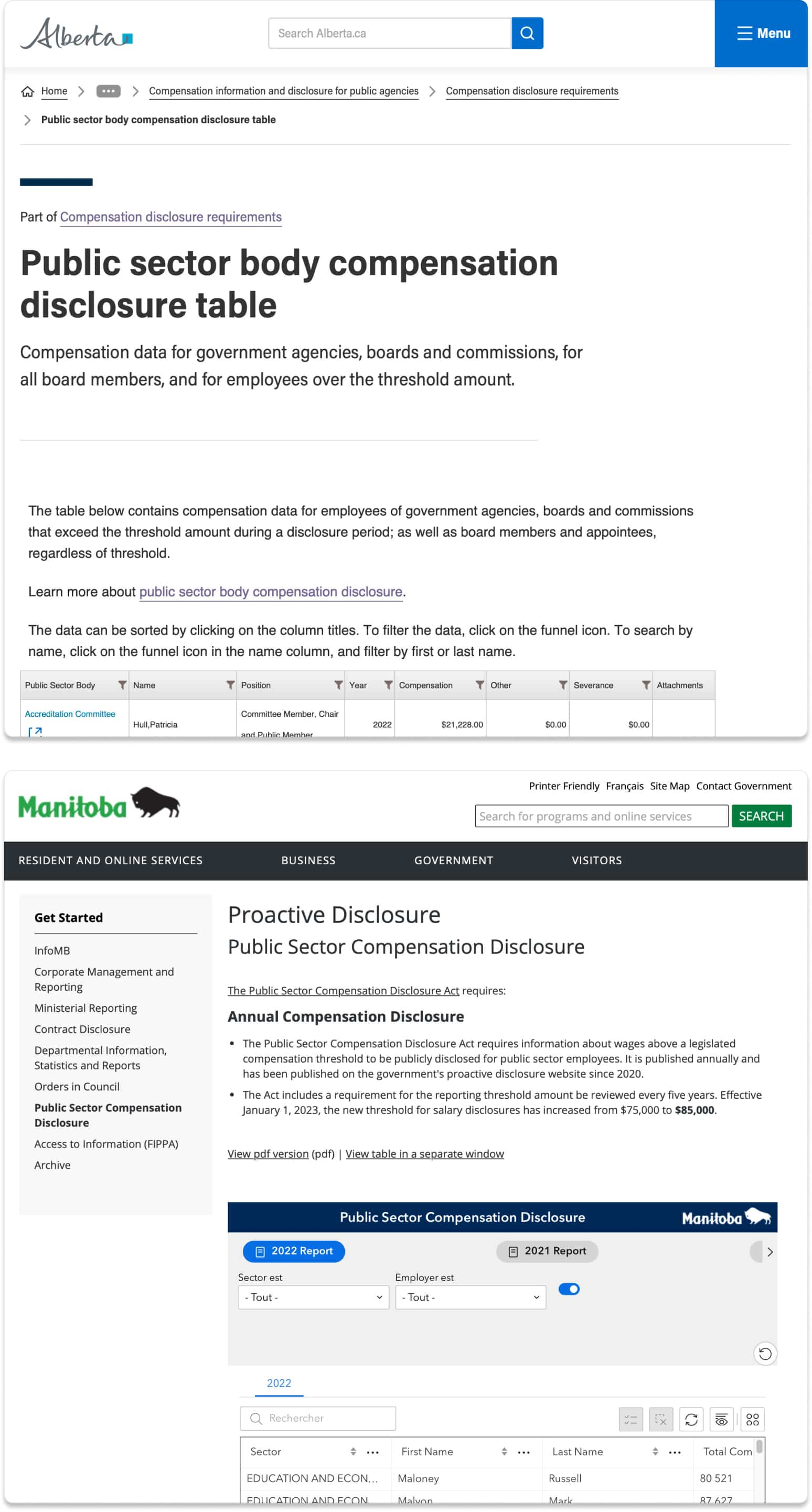
According to public administration experts, Quebec should follow the majority of Canadian provinces and publish data on the salaries of its civil servants every year.
“Quebec is really the reason for this policy [à celles des autres provinces]. I don't understand why it's not public,” says Genevieve Tellier, a political scientist and professor of public administration at the University of Ottawa.
Mme Tellier himself is on Ontario's “Sunshine List,” where total salaries paid by the state of more than $100,000 have been published since 1996. It also includes unionized municipal employees such as doctors, teachers and bus drivers.
“Every year when the list comes out, you'd think it would be the first thing the media would look at. It can also affect elections,” explains Genevieve Tellier.
A good comparison tool
François Dauphin, director of the Institute on the Governance of Private and Public Organizations, believes that similar transparency in Quebec “ensures the legitimacy of the people in office” and draws comparisons with other provinces.
“Having a picture of the situation is very useful for someone looking for a job or negotiating a salary,” adds Audrey Laurin-Lamothe, associate professor at York University.
Alberta and Manitoba have similar transparency, with a concentrated list of salaries above $125,000 and $85,000, respectively. All data can be easily downloaded from government websites.
In Newfoundland and Labrador and Nova Scotia, lists are available for every public agency with salaries above $100,000. In Saskatchewan, all salaries above $50,000 are shown.
British Columbia is less transparent, as it only discloses the salary of the CEO and the other 4 highest-paid executives in its public organizations, if they earn more than $125,000 a year. At least all the information is available at one place.
“Personal Information”
In Quebec, to achieve a similar result, we had to submit at least 300 requests for access to information, as well as compile dozens of annual reports from state corporations and health institutions.
Furthermore, unionized staff salaries, even if they exceed $100,000, are not available.
The Treasury Board Secretariat states that “the salary of a public service employee is personal information”.
According to Nicolas Gagnon, director of the Quebec region for the Canadian Taxpayers Federation, it is unacceptable that this data is not published “under circumstances that occur in other Canadian provinces.”
“Whether it is a state corporation or a parapublic organization, this information should be transparent and available at all times.”
“We are not necessarily talking about having the address of a civil servant, but looking at the remuneration, people can know how their money is being used in different institutions,” he said.







More Stories
Sportswear: Lolle acquires Louis Garneau Sports
REM is still innovative enough to foot the bill
A trip to the restaurant with no regrets for these customers